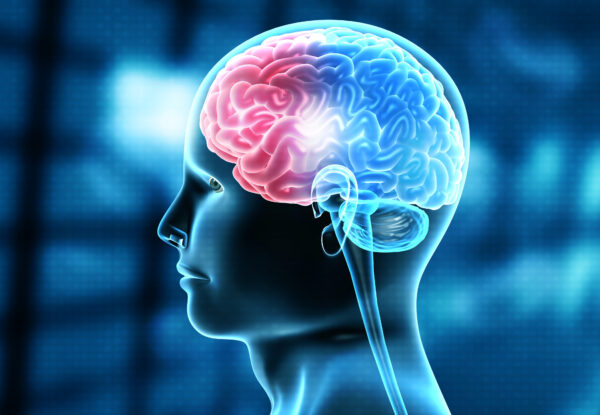Kynurenine Pathway Blood Test, Comprehensive
$349.00
Tryptophan, an essential amino acid, plays a multifaceted role in the regulation of various physiological processes, including protein synthesis, neurotransmitter production, immune function, and mood regulation. Tryptophan is involved in promoting healthy aging through the following mechanisms:
- Serotonin Production: Tryptophan is a precursor for serotonin, a neurotransmitter involved in mood regulation, sleep-wake cycles, appetite control, and cognitive function. Adequate serotonin levels are essential for maintaining emotional well-being and overall quality of life, factors that contribute to healthy aging.
- Melatonin Synthesis: Tryptophan is also a precursor for melatonin, a hormone that regulates the sleep-wake cycle and has antioxidant properties. Melatonin levels decline with age, and disturbances in circadian rhythms are associated with aging-related conditions such as insomnia and cognitive decline. Supplemental melatonin has been studied for its potential anti-aging effects and its ability to improve sleep quality and cognitive function in older adults.
- Immune Function: Tryptophan metabolism through the kynurenine pathway (KP) has immunomodulatory effects and plays a role in regulating immune responses. Dysregulation of the KP has been implicated in aging-related inflammation and immune dysfunction. Balancing tryptophan metabolism within the KP may contribute to healthy immune aging and longevity.
- Antioxidant Properties: Tryptophan metabolites, such as serotonin and melatonin, possess antioxidant properties and helps mitigate oxidative stress, which is a hallmark of aging and contributes to age-related cellular damage and degenerative diseases. By scavenging free radicals and reducing oxidative damage, tryptophan and its derivatives promote longevity and healthy aging.
- Gut Microbiota: Tryptophan is metabolized by gut microbiota into bioactive metabolites that influence host physiology and metabolism. The gut-brain axis, which involves bidirectional communication between the gut microbiota and the central nervous system, plays a role in aging-related processes, including cognitive decline and neurodegeneration. Tryptophan metabolism by gut bacteria impacts longevity by modulating host metabolism, inflammation, and brain function.
9 Tryptophan Metabolites tested: Tryptophan, Kynurenine, Tryptophan/Kynurenine Ratio, Kynurenic Acid, Quinolinic Acid, NAD+/NADH, 5-Hydroxytryptophan (5-HTP), Serotonin, Melatonin
Description
Tryptophan, an essential amino acid, plays a multifaceted role in the regulation of various physiological processes, including protein synthesis, neurotransmitter production, immune function, and mood regulation. Tryptophan is involved in promoting healthy aging through the following mechanisms:
- Serotonin Production: Tryptophan is a precursor for serotonin, a neurotransmitter involved in mood regulation, sleep-wake cycles, appetite control, and cognitive function. Adequate serotonin levels are essential for maintaining emotional well-being and overall quality of life, factors that contribute to healthy aging.
- Melatonin Synthesis: Tryptophan is also a precursor for melatonin, a hormone that regulates the sleep-wake cycle and has antioxidant properties. Melatonin levels decline with age, and disturbances in circadian rhythms are associated with aging-related conditions such as insomnia and cognitive decline. Supplemental melatonin has been studied for its potential anti-aging effects and its ability to improve sleep quality and cognitive function in older adults.
- Immune Function: Tryptophan metabolism through the kynurenine pathway (KP) has immunomodulatory effects and plays a role in regulating immune responses. Dysregulation of the KP has been implicated in aging-related inflammation and immune dysfunction. Balancing tryptophan metabolism within the KP may contribute to healthy immune aging and longevity.
- Antioxidant Properties: Tryptophan metabolites, such as serotonin and melatonin, possess antioxidant properties and helps mitigate oxidative stress, which is a hallmark of aging and contributes to age-related cellular damage and degenerative diseases. By scavenging free radicals and reducing oxidative damage, tryptophan and its derivatives promote longevity and healthy aging.
- Gut Microbiota: Tryptophan is metabolized by gut microbiota into bioactive metabolites that influence host physiology and metabolism. The gut-brain axis, which involves bidirectional communication between the gut microbiota and the central nervous system, plays a role in aging-related processes, including cognitive decline and neurodegeneration. Tryptophan metabolism by gut bacteria impacts longevity by modulating host metabolism, inflammation, and brain function.
9 Tryptophan Metabolites tested: Tryptophan, Kynurenine, Tryptophan/Kynurenine Ratio, Kynurenic Acid, Quinolinic Acid, NAD+/NADH, 5-Hydroxytryptophan (5-HTP), Serotonin, Melatonin






